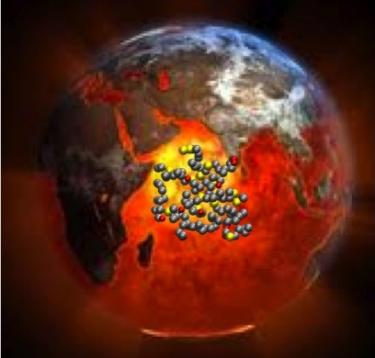Alumni Colloquium @ DF - D. Alfè - At the Earth's Core

The Earth is a dynamic planet, reshaping its surface and its interior on geological time scales. Most of the energy responsible for these activities was deposited in the original accretion process 4.5 billion years ago, and is continuously produced in the decay of radioactive material.
On much shorter time scales (thousands of years), the Earth's liquid outer core recycles and mixes throughout. These convective motions are responsible for the generation of the Earth magnetic field, and for transporting heat from the bottom of the core to the base of the mantle, where it is used to drive mantle convection. Transport of heat mechanisms in the core are determined by a number of physical properties of core material, including thermal and electrical conductivity, viscosity, and others. Knowledge of the core composition and of its temperature distribution is also essential to build a thermal model of the Earth and the evolution of its magnetic field. Most of the Earth’s interior is only accessible to direct measurements via seismicity, which provides limited information on its physical properties. It is possible, however, to perform experiments on core material, even though the extreme conditions of temperature and pressure still pose a challenge.
Here I will discuss how a combination of experiments and theoretical calculations over the past few decades have contributed to improve our understanding of this remote part of our planet, and in particular I will dwell upon very recent results that suggest that old well established theories of core convection may need to be revisited.




